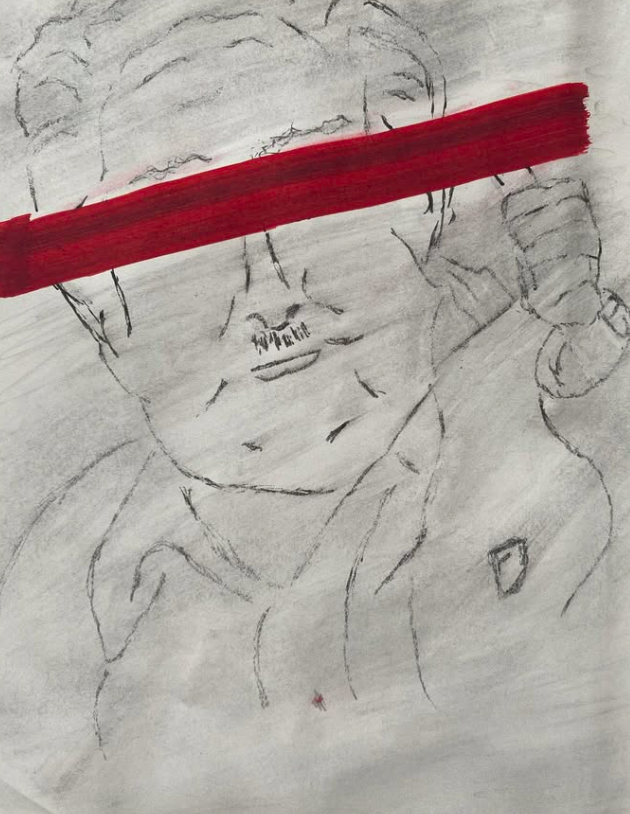Por: Santiago Córdoba Wolf

Bandits by Eric J. Hobsbawm was written in the late 1960s. It was a groundbreaking work for its time because it challenged traditional ways of writing history—not just in terms of winners and losers or good versus evil, but by focusing on an alternative perspective: the viewpoint of «the others,» «the forgotten ones»… the bandits.
In their majority, these were peasants in feudal and pre-industrial societies, living in the mountains and entirely forgotten by the dominating order, often regarded as inferior in every sense. These were rebels seeking justice against the established social order and its dictated norms. They became idols in their villages and immortal figures in ballads and legends, representing the grievances of the oppressed and their longing for a fairer society.
Hobsbawm describes various types of bandits: the social one, the avenger, the noble robber, and the haiduks of the Balkans. While these bandits share many similarities—resistance to oppression, popular support, and mythologization—there are also differences. Some were violent, others less so. Some sought revenge, others wealth and fame. While some were warriors and representatives of the people, others were simply feared.
The significance of Hobsbawm’s work lies in its ability to bridge historical narratives with universal themes of resistance, justice, and rebellion. By examining bandits as a social phenomenon, Hobsbawm sheds light on how systemic inequalities and oppressive structures create not only criminals but also heroes and symbols of defiance.
Using these concepts, I aim to construct the image of the «modern bandit» in contemporary figures and movements, focusing on one individual I believe perfectly embodies the «bandit» type: José Mujica. His journey from guerrilla fighter to president encapsulates the evolution of the social bandit archetype in modern times.
José «Pepe» Mujica stands as a remarkable example of someone who has transitioned from being an outlaw to an idol and eventually a respected mainstream figure. Raised in a working-class family in rural Uruguay, Mujica’s early life was marked by modest circumstances. His formal education was limited to the basics, as he attended school only briefly. From a young age, he immersed himself in manual and agricultural labor, which shaped his understanding of the struggles faced by ordinary people. His humble roots and experiences in the countryside shaped his sensitivity to social inequalities, which later led him to socialism and left-wing movements in Uruguay.
In the 1960s, Uruguay faced a severe economic, social, and political crisis, which naturally paved the way for revolutionary movements.
“The ‘best time for bandits’ is one of societal transition, where inequalities are pronounced, and the state is either weak or perceived as unjust. This unique combination makes bandits both possible and, in some contexts, even necessary. Men become bandits where cruelty breeds cruelty, and blood calls for blood.»
— Hobsbawm, Bandits, 1981, p. 69.
Mujica: From Peasant to Guerrillero. From Revolutionary to Enemy of the State. From Prisoner to President.
This hostile environment, marked by social inequality, political unrest, and economic crisis, provided fertile ground for revolutionary movements. It was within this context that Mujica felt compelled to join the guerrilla group Movimiento de Liberación Nacional-Tupamaros (MLN), a movement that sought to challenge the entrenched systems of power and oppression.
Like any legendary band of outlaws, the Tupamaros engaged in high-stakes actions that captured the public’s imagination and attention. Their operations included bank robberies to redistribute wealth, kidnappings of political figures to destabilize the ruling class, the liberation of political prisoners as acts of defiance, and armed propaganda to spread their revolutionary message. These actions not only embodied their resistance but also positioned them as symbols of defiance against a system perceived as corrupt and unjust.
They were the quintessential outlaws—perpetual victims of a system that gave them no real hope for victory. Yet, they persisted, challenging the broader structures of oppression in acts that blurred the line between heroism and criminality. In Robin Hood terms, they took from the rich and gave to the poor, empowering their own. However, they cannot be mistaken for «noble robbers,» as their actions often went beyond mere redistribution. They had no hesitation in unleashing violence upon their enemies, not for personal gain but as avengers seeking a form of justice that resonated with their vision of communal equity.
“Like most bandits, they lose. They always lose, even when they don’t.”
—Hobsbawm, Bandits, 1981, p. 64.
In 1973, a military dictatorship was established in Uruguay, and Mujica like many of his comrades, was captured and subjected to unthinkable conditions as a political prisoner. He spent 13 years in prison, enduring harsh treatment that included physical and psychological abuse. For much of his imprisonment, Mujica was kept in solitary confinement, a form of punishment designed not only to isolate but to break the human spirit.
Fifteen years later, following a general amnesty granted after democracy was restored, Mujica was finally released from prison. The man who had once been branded an enemy of the state now began to integrate into its political structure. In a remarkable transformation, the former bandit transitioned into a role as a contributor to the very system he had once fought against. Mujica became not just a participant but also a benefactor and protector within the established social order, leveraging his past struggles and ideals to influence the country’s future from within.
«When opportunity knocks on bandits’ doors, you can be sure they will gladly open it.»
— Hobsbawm, Bandits, 1981, p. 107.
Mujica and his former guerrilla comrades founded the Movimiento de Participación Popular (MPP) in 1989, which later joined the Frente Amplio (FA), a coalition of leftist and revolutionary political parties established in 1971.
Mujica soon left his guerrilla ways behind, trading his pistol for a briefcase. However, he retained his humble image and populist rhetoric, maintaining his «banditry» appeal while governing within the system.
Hobsbawm emphasizes that bandits are often seen as figures of justice, fairness, and defiance. Their personal charisma and reputation are crucial in garnering popular support. Mujica understood this well from his guerrilla days. He retained the support of the poor and oppressed throughout and after the dictatorship while also expanding his movement’s base.
Like most bandits, Mujica’s leadership stemmed not only from his actions but from his ability to embody the grievances and aspirations of the oppressed. He truly was one of them—he suffered, grieved, and bled like them. Soon enough he became the face of the leftist movement in Uruguay, becoming a senator in 1999 and eventually president in 2010. As a former guerrilla fighter, he carried his revolutionary ideals into mainstream politics, rather than the other way around.
Even with all the power in his hands, Mujica never forgot his roots. He maintained his rural and austere lifestyle, rejecting the presidential home and continuing to live on his farm on the outskirts of Montevideo. He also actively donated 90% of his salary to social housing programs and disadvantaged communities.
A social bandit knows the struggle and oppression firsthand. They understand, better than anyone, the social injustices faced by rural communities. The social bandit constantly rejects the material rewards of their actions and emphasizes their commitment to justice and equality. While Mujica may not fit the traditional definition of a bandit, he remains a man of the people—a necessary hero and idol.
His austere lifestyle served the same symbolic function as the myths surrounding bandits: it inspired admiration and positioned him as a moral counterpoint to traditional elites. As Hobsbawm notes of southern Italian brigands who maintained their modest, rural lifestyles even as they became famous, Mujica did the same. This earned him the title of «the most humble president.» Despite being the face of «the establishment,» he consistently denied the privileges typically associated with global leaders, reinforcing his image as part of the peasantry and rejecting the notion of being above the people.
Mujica’s presidency ended in 2015, but the myth and legend surrounding him began long before. His colloquial title of «the most humble president» endures, not only in Uruguay or Latin America but worldwide. This has brought international attention to him, as Mujica—like the bandits—represents a figure of admiration not just for what he does but for what he symbolizes. He is not only the noble bandit; he is a bringer of justice, a champion of the oppressed, and a man who rights wrongs.
Even with the mainstream attention and persistent interest in his persona, he remained true to himself—a peasant, a rural worker, just another member of the community working for the greater good.
Since leaving office, Mujica has stayed at his farm, breeding cattle and farming, while trying to avoid media attention as much as possible. Like most bandits, he remains a simple man, tied to the values of his world.
Today, Mujica is nearing the end of his earthly journey. With a lifetime of battles behind him and a severe cancer diagnosis, he knows his time is limited. But when a bandit leaves, another fills their place, and he is acutely aware of this and has actively advocated for the importance of new generations in Uruguay.
He is not gone yet, but his myth and legend have already grown. When the time comes, and he closes his eyes for the last time, his legacy will only expand. As you know… bandits never truly die. They just step away for a while.
